(September 8, 2022) I could listen to the sound of vegetables being cut when I connected with Chef Srijith Gopinath over a call for an interview from California. When I asked him if he was cooking, pat came the reply that he was making a mushroom delicacy for his family. “I love cooking for my family,” smiled Chef Sri, as he finished plating the breakfast. It was quite heartwarming to catch a chef cooking for his loved ones before starting a very busy day at one of Palo Alto’s most renowned restaurants – Ettan.
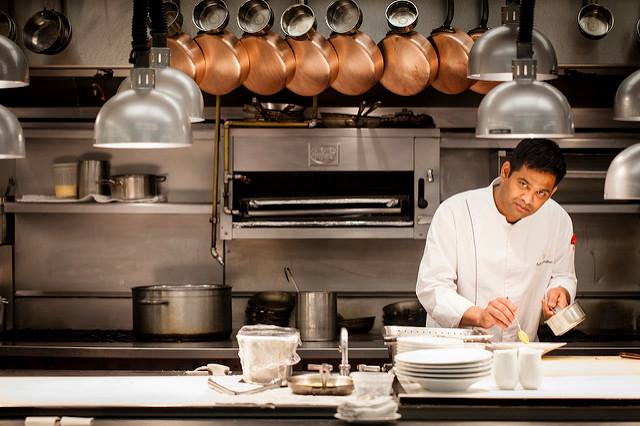
Chef Srijith Gopinath
The two star Michelin chef from the southern parts of India, who thought of becoming an IT professional as a kid, is currently one of the highest-rated chefs in the world. Starting his journey from a small village, Chef Sri has come a long way from assisting the head chef in the hotel to running his own venture in California. “I have been cooking for over two decades, but at my restaurant, I get to bring in the spices from my homeland to the table. I do a lot of Indian dishes, but with a little bit of twist. My menu lists delicacies such as Truffle kulcha, Red plum rasam, Samosa pie, and Tender jack vada. I want the world to taste the amazing herbs from my country,” the chef tells Global Indian.
The spice trail
Growing up in the land of spices, Chef Sri who hails from a small village in Kanyakumari often saw his mother cook for the entire family. “I lived in a joint family, and as a kid, I wasn’t allowed to cook. But I loved to eat and was always fascinated by different flavours. Although tasting varied cuisine wasn’t possible in a small village, I would still try to find something different to eat in the limited options I had then.” As a kid, Chef Sri would often be asked by his grandmother to run to the backyard to fetch her some spices. “We had black pepper, turmeric, ginger, and many other spices. I wasn’t taught about these spices, I just knew what they were, how they smelled or tasted since I was a kid.”
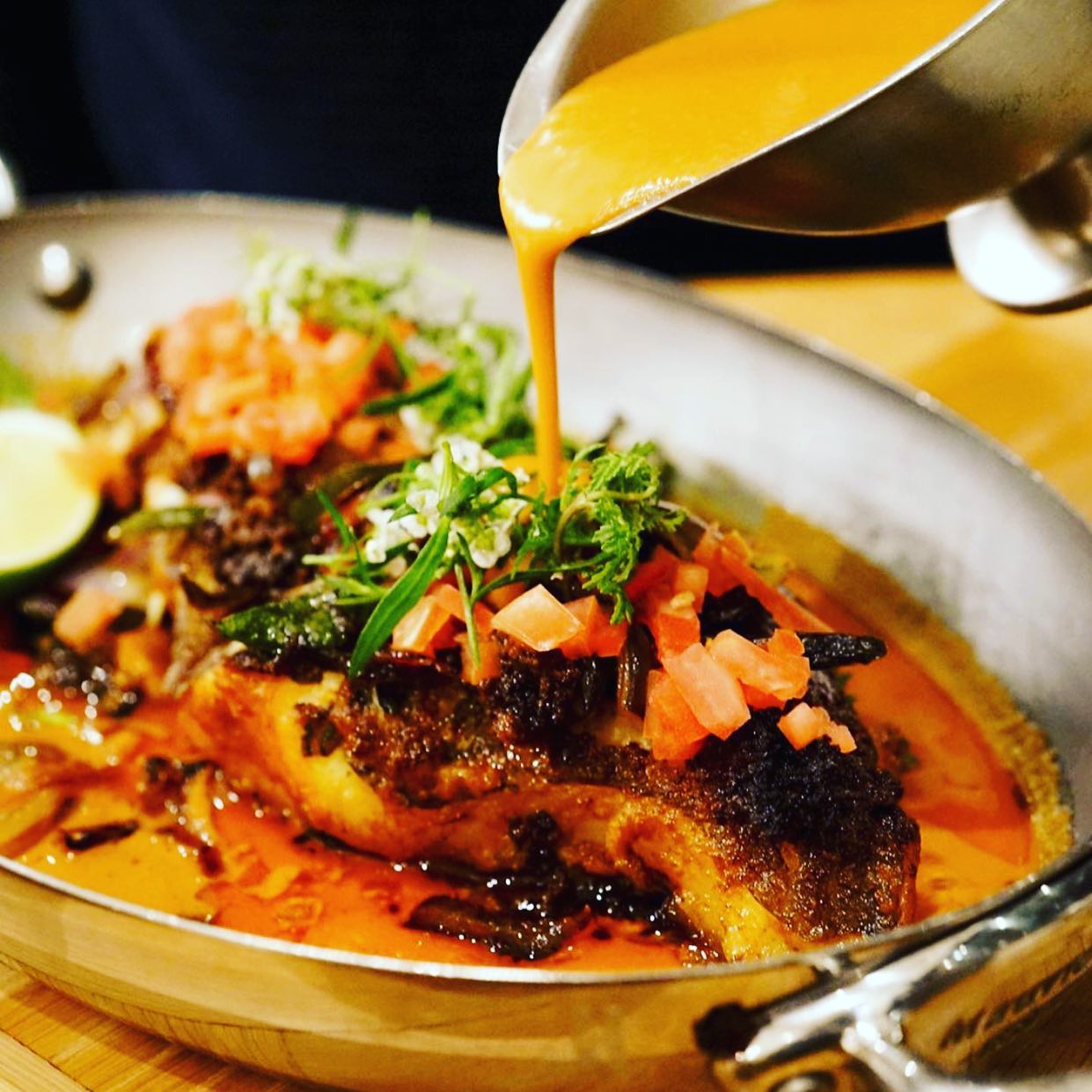
Sea bass collar spice roasted with coconut, turmeric, tamarind and curry leaves
Leaving behind his beautiful coconut orchard, the chef moved to Bengaluru to pursue a degree in Hotel Management. Interestingly though, this was not the original plan. “Becoming a chef was never a goal – in fact, I never thought about it growing up. I always thought that I would be a regular guy, working in the IT sector. Even when I joined the Hotel Management college, I was pretty sure that I wouldn’t go into the kitchen.”
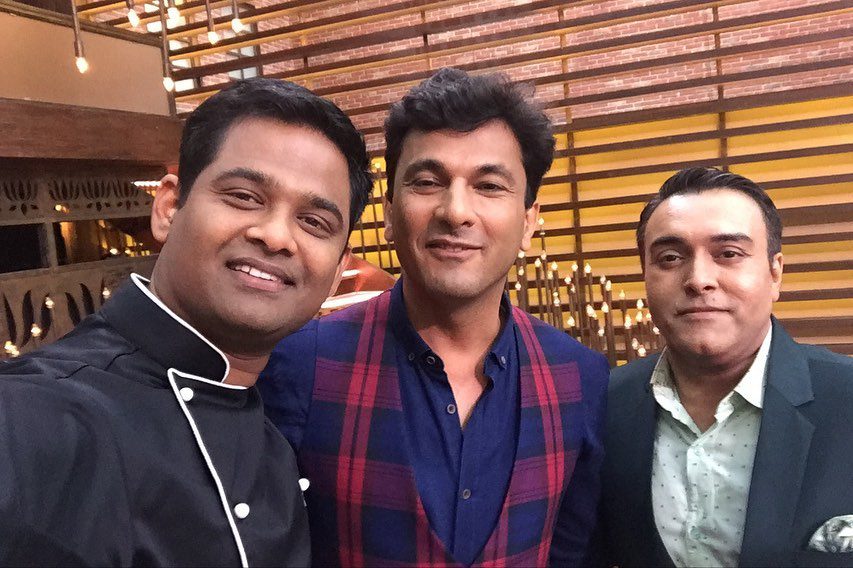
Chef Srijith Gopinath with Chef Vikas Khanna and Chef Zorawar Kalra
So how did the odds work in his favour? “You know when you live alone and your mother isn’t around to take care of you, you inadvertently end up with a ladle in hand trying to make something that could taste something like home,” laughs the chef, adding, “Cookery books were my best friends because there was no Google to tell me a recipe. I found it quite interesting to experiment with tastes and flavours. So, I decided to become a chef.”
Tasting success
His graduation paved the way for his professional career which started with working for the local hotels to get a better understanding of the functioning of a kitchen. It was while working at a hotel in Chennai, Chef Sri was offered a job at two-starred Belmond Le Manoir aux Quat Saisons in Oxfordshire. This shift not only helped him hone his culinary skills, but also aided in getting his talent recognised. “It was one of the iconic restaurants and I saw how a kitchen actually functioned. While I learnt a lot there, it was also the first time that I earned a good amount and took the opportunity to travel as much as I could around Europe,” he shared.
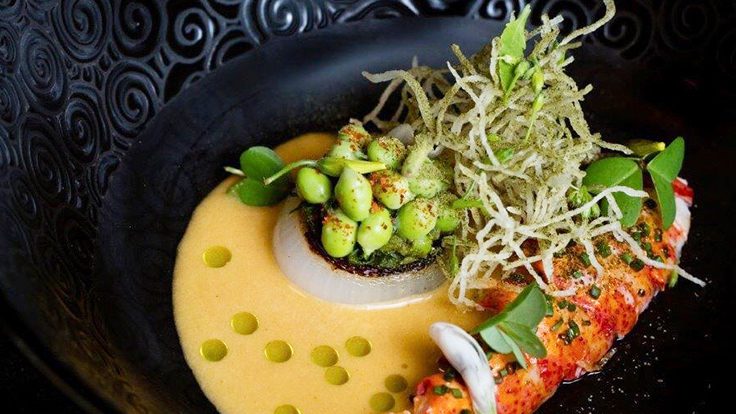
Maine lobster poached in spiced ghee, coastal curry, sweet peas and pea leaf oil
Eventually, the chef moved to the Taj Hotels, first in Maldives and then in San Francisco, where he earned his first Michelin star. “At Campton Place, I earned my first Michelin in the two years and subsequently got the second one as well. It’s not easy to man a kitchen, although many think that it is a glamorous job. In most hotels and restaurants, the kitchen is the heart of the story. So, there is always some chaos that we are dealing with, something is always going wrong which the team is working on fixing. But, when we send out the plates, they are always perfect. So, to be rewarded for all the hard work that we put in every day is very special,” shares the chef.
While he cooks for some very high-profile people, he himself revels in comfort food. “I think it’s quite natural to lean towards what you used to eat as a child. So for me, a good dosa with coconut chutney is the best comfort food. Also, I enjoy sitting down for sadhya, which is a big selection of vegetarian and non-vegetarian dishes served on a banana leaf in Kerala – mostly during Onam or weddings. But, because of living in California for the last 15 years, I have come to love some local comfort food as well. I really enjoy having a good Bánh mì, which is a Vietnamese sandwich or a good plate of piping hot pasta.”
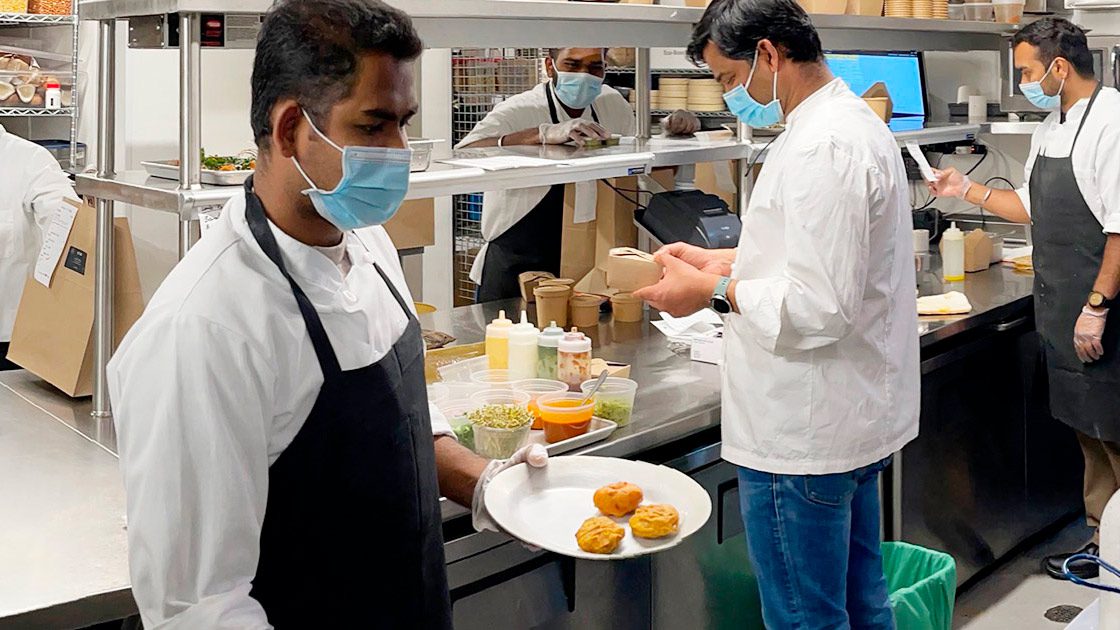
Chef Srijith Gopinath and team at Ettan
After successfully running the Taj kitchen, the chef recently started his own restaurant. Named Ettan, which means “to breathe” in Sanskrit, the restaurant became an instant hit in Downtown Palo Alto. Unfortunately, it had to shut shop within the first month of its inauguration due to Covid. “It took us about 18 months to start Ettan in February 2020, and then just in 22 days, COVID caused havoc across the globe. For two months we had to close the restaurants, but in May 2020 we started taking takeaway orders and slowly opened the restaurant again,” says the chef. Ettan is currently one of the highest-rated restaurant in the Palo Alto area. “I plan on starting another restaurant soon,” shared the chef before dashing off to the kitchen.
- Follow Chef Srijith Gopinath on Facebook, Instagram and Twitter
- Follow Ettan on Instagram, Twitter and Facebook

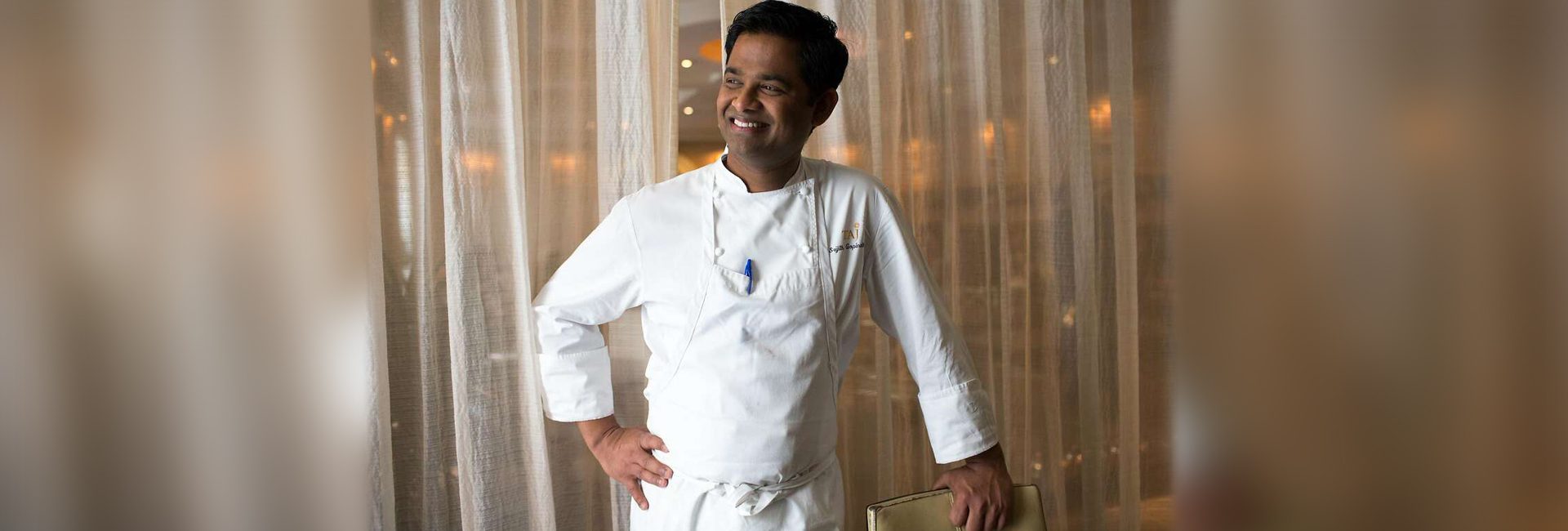
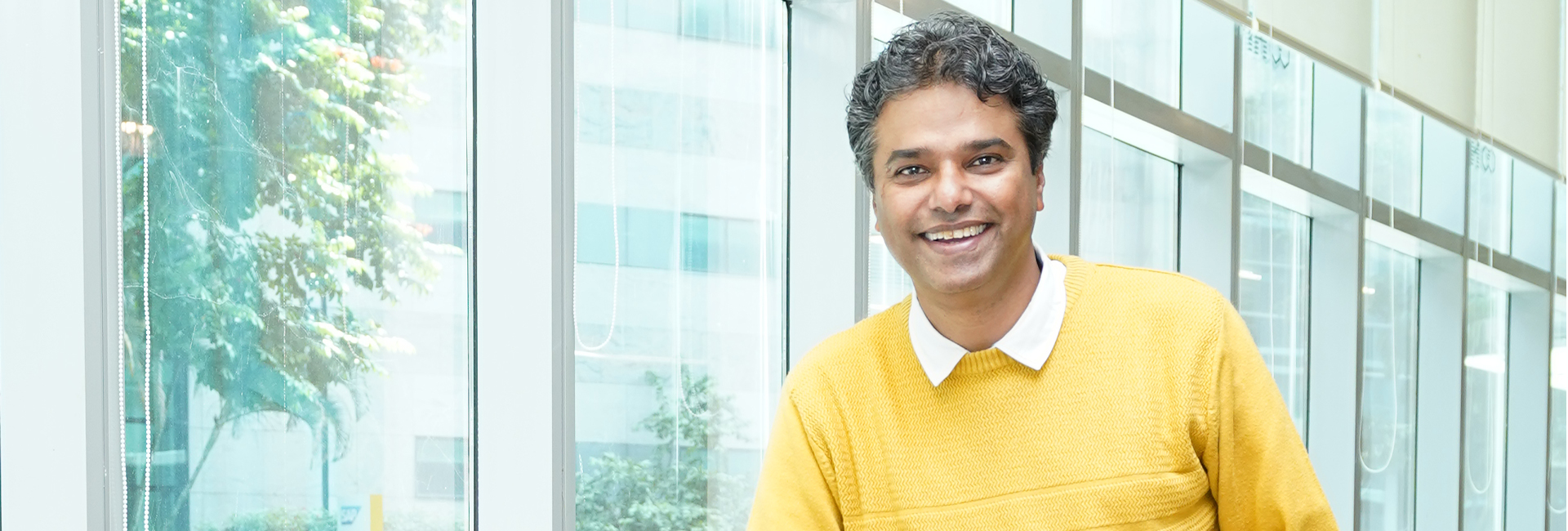
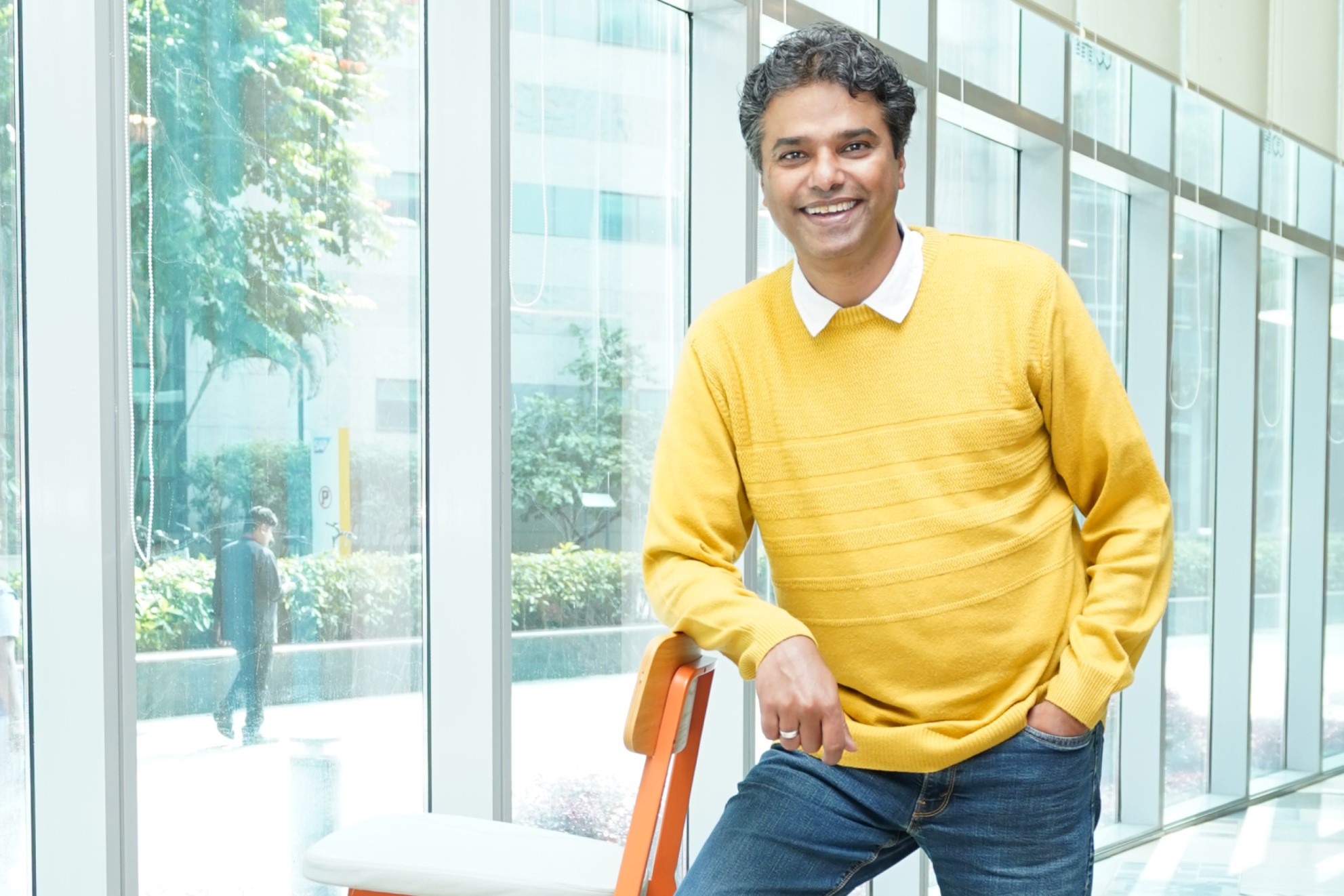
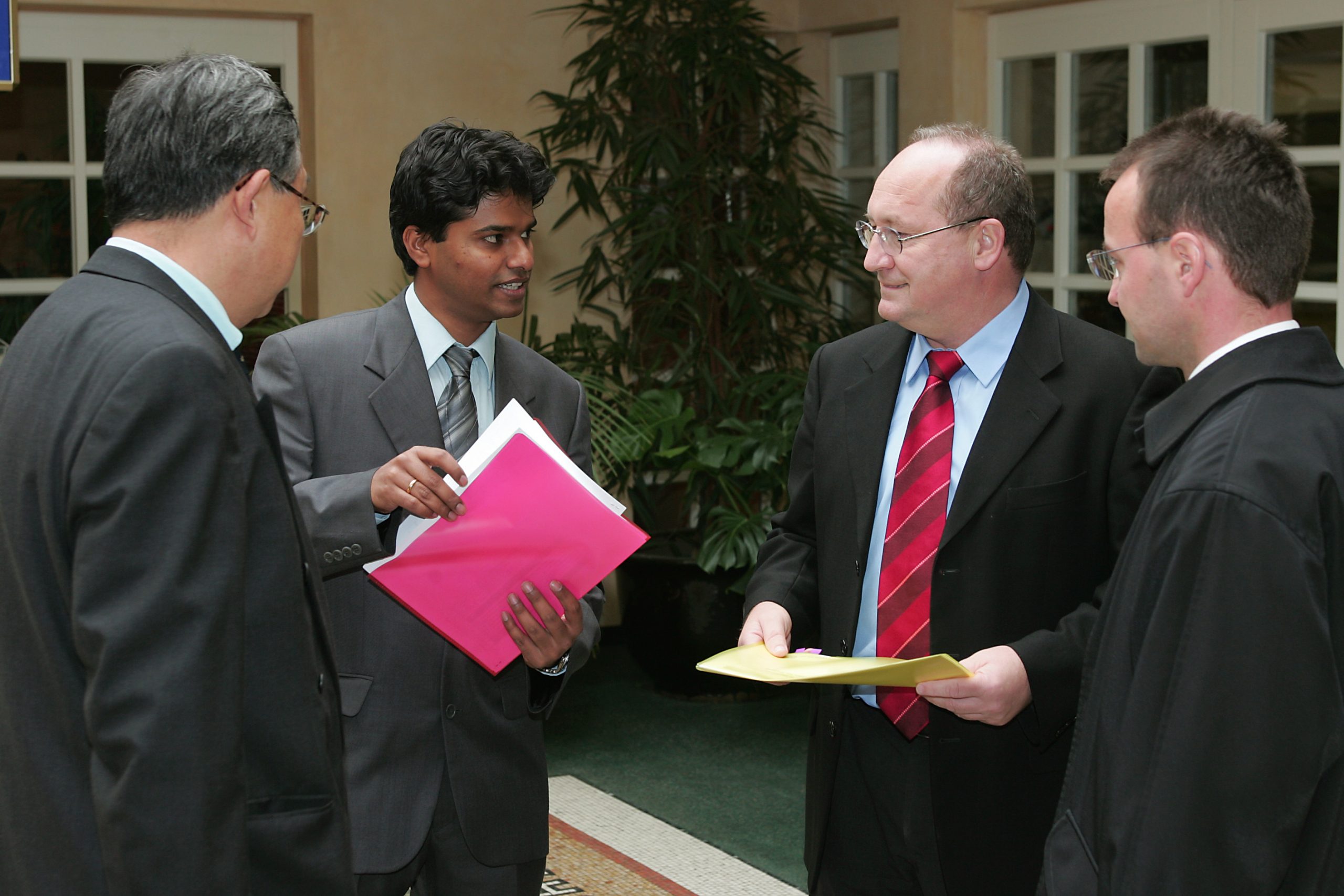 Ferose with former SAP Board Member Gerhard Oswald[/caption]
Ferose with former SAP Board Member Gerhard Oswald[/caption]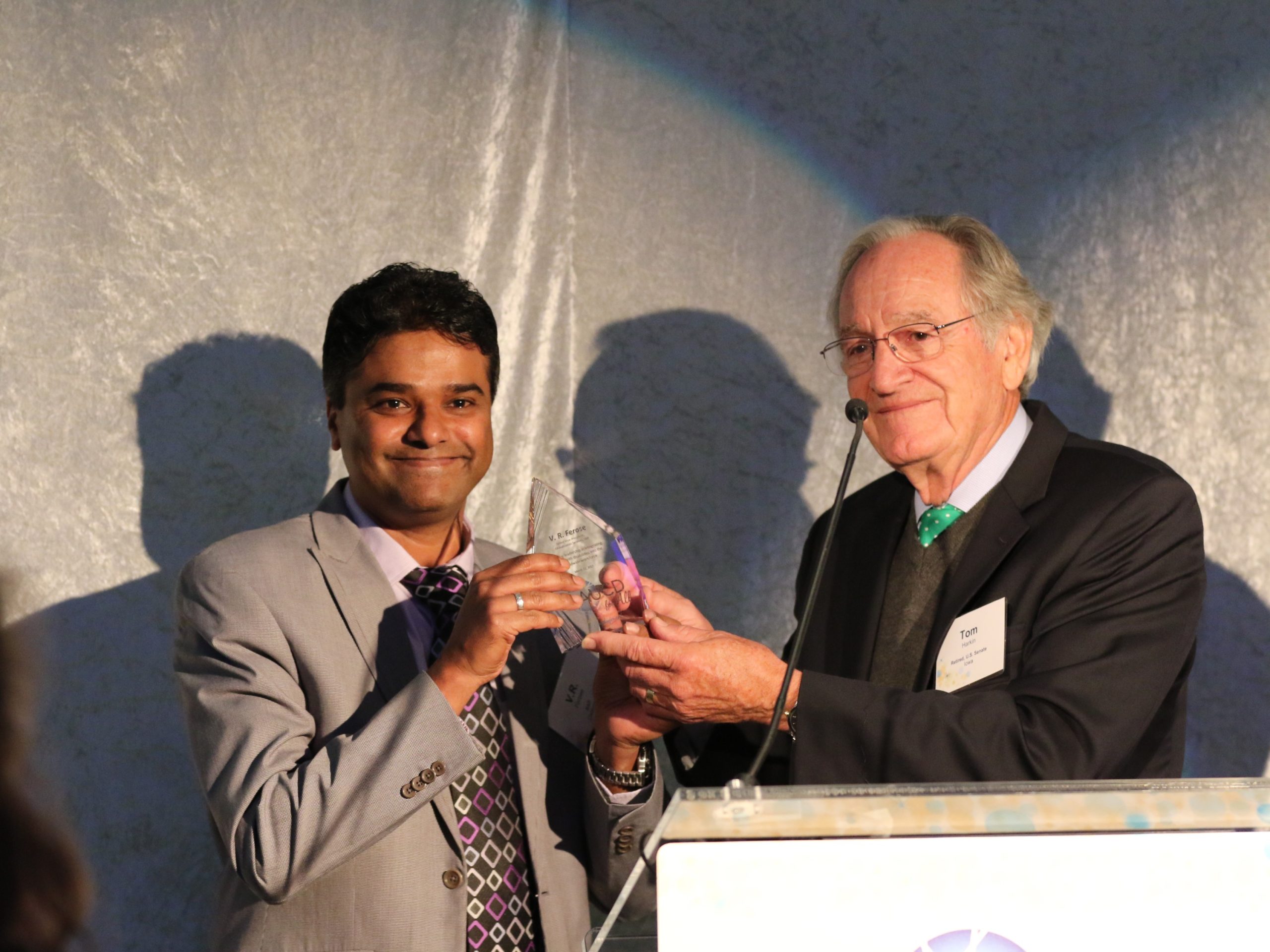 VR Ferose receives the AUCD award from Senator Tom Harkins for Autism at Work[/caption]
VR Ferose receives the AUCD award from Senator Tom Harkins for Autism at Work[/caption]
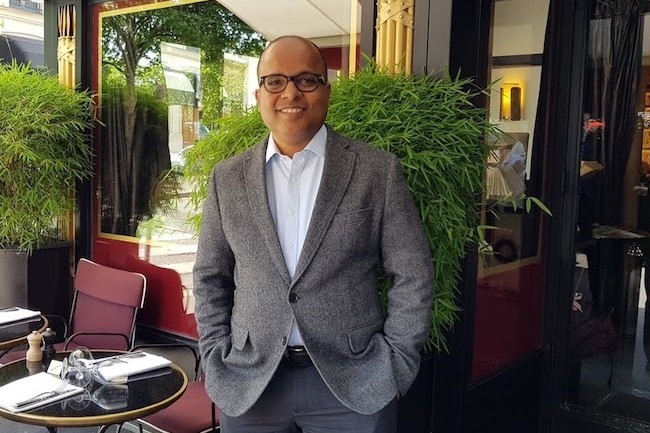


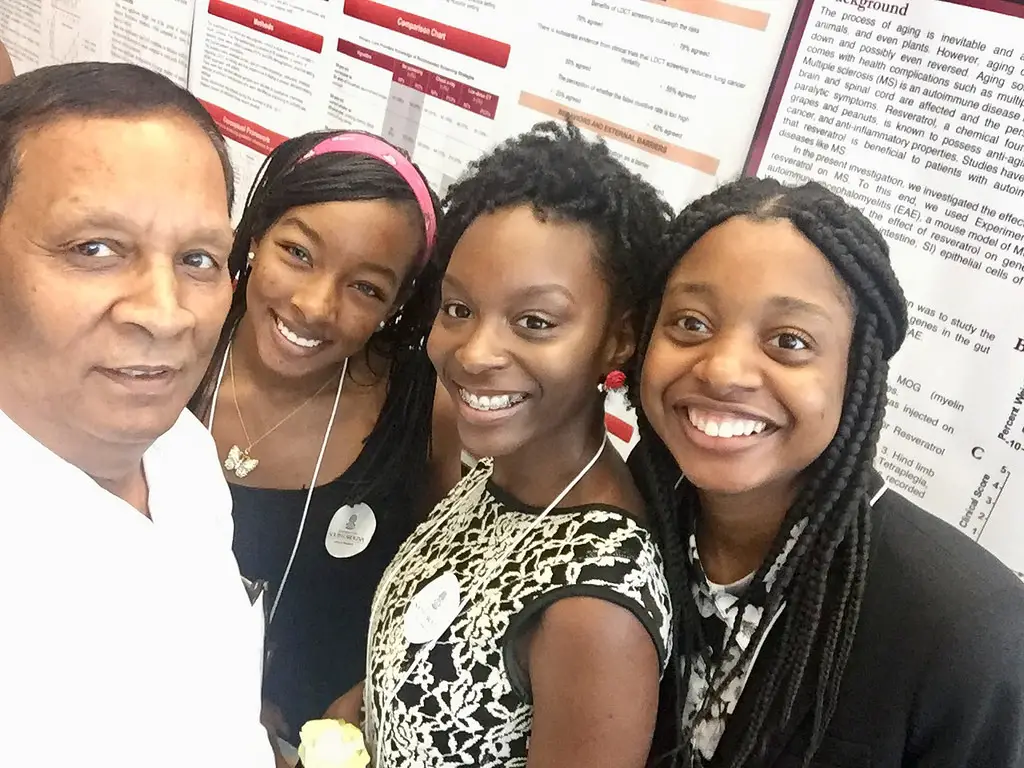 Dr Narendra Prasad Singh with his mentees[/caption]
Dr Narendra Prasad Singh with his mentees[/caption]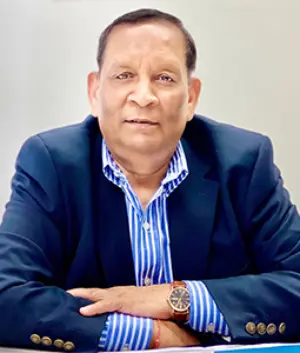 Dr Narendra Prasad Singh[/caption]
Dr Narendra Prasad Singh[/caption]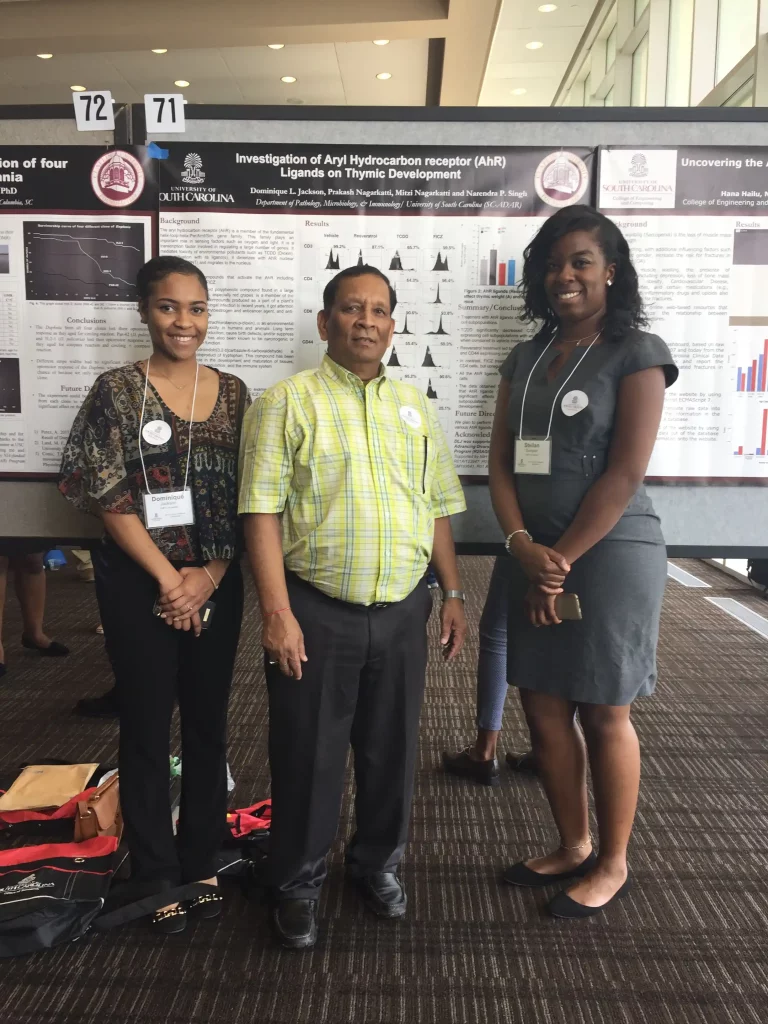 Dr Narendra Prasad Singh with his mentees[/caption]
Dr Narendra Prasad Singh with his mentees[/caption]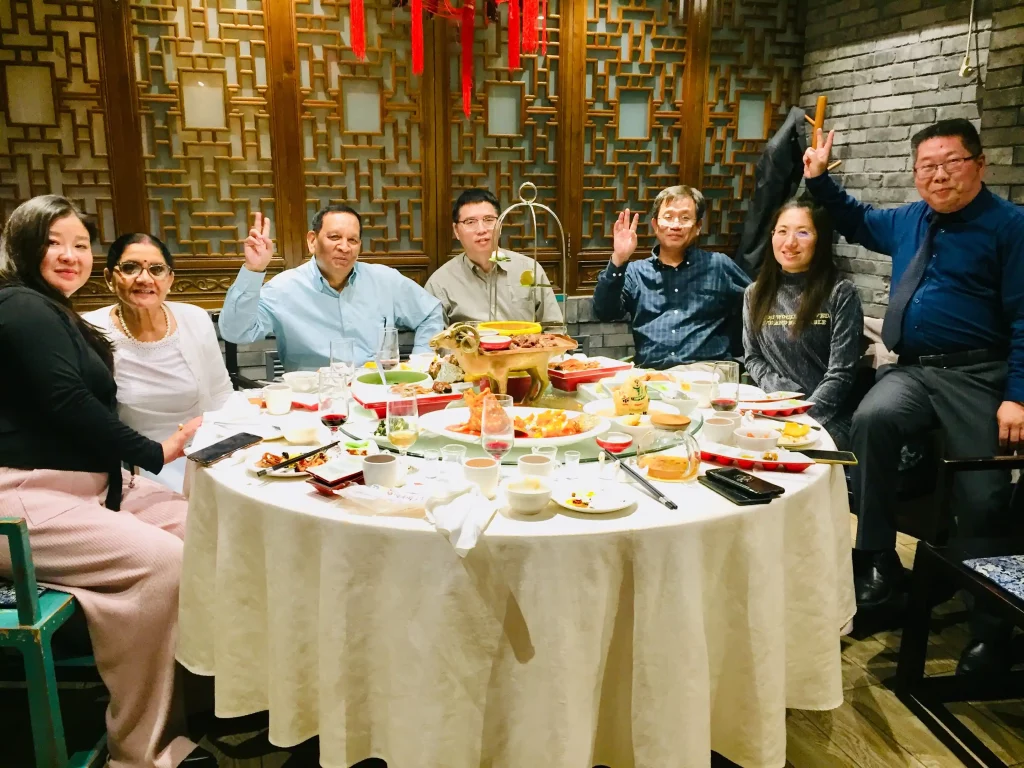 Dr Narendra Prasad Singh during a visit to China in 2019[/caption]
Dr Narendra Prasad Singh during a visit to China in 2019[/caption]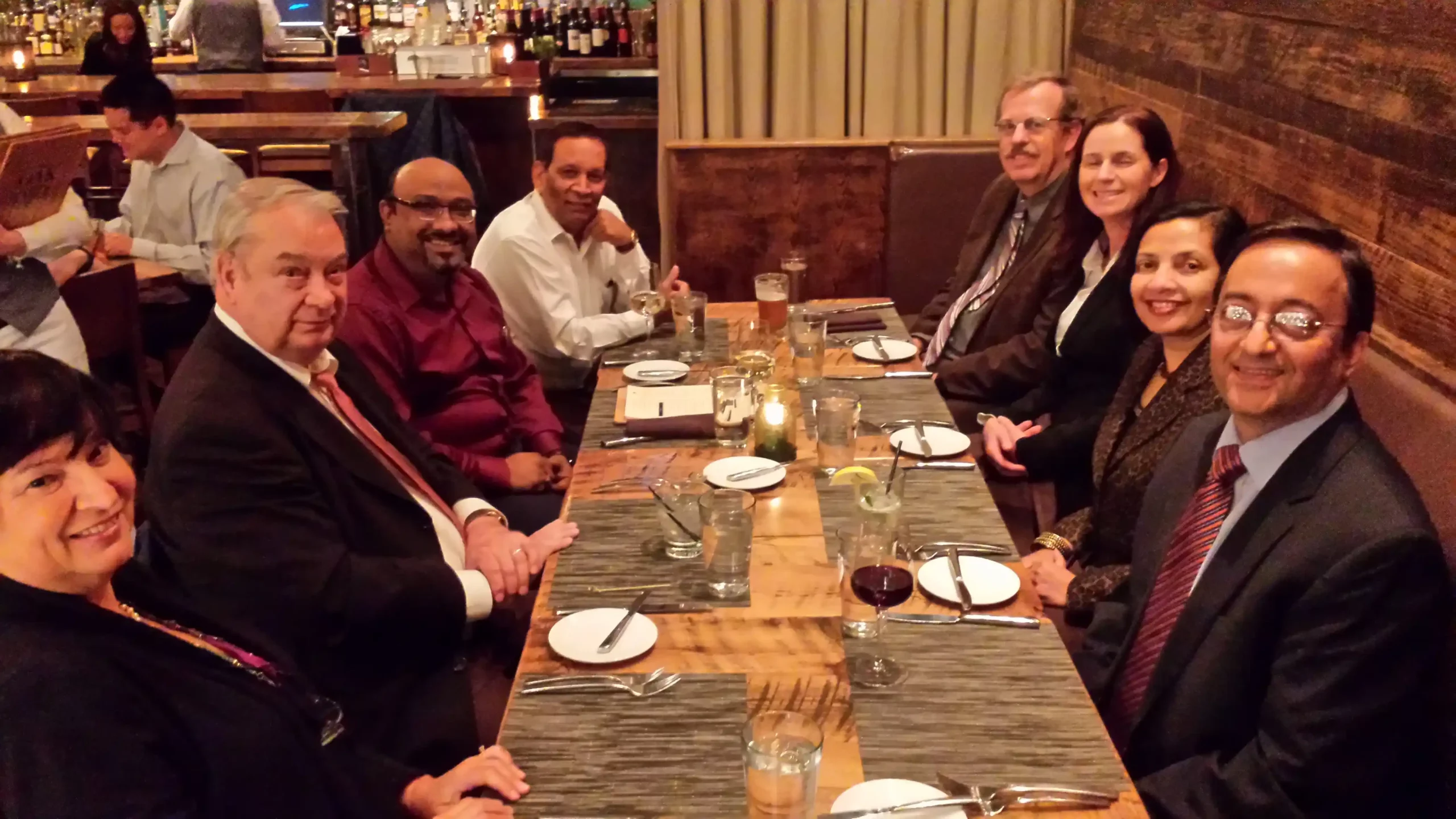 Dr Narendra Prasad Singh in a get-together with a nobel laureate[/caption]
Dr Narendra Prasad Singh in a get-together with a nobel laureate[/caption]
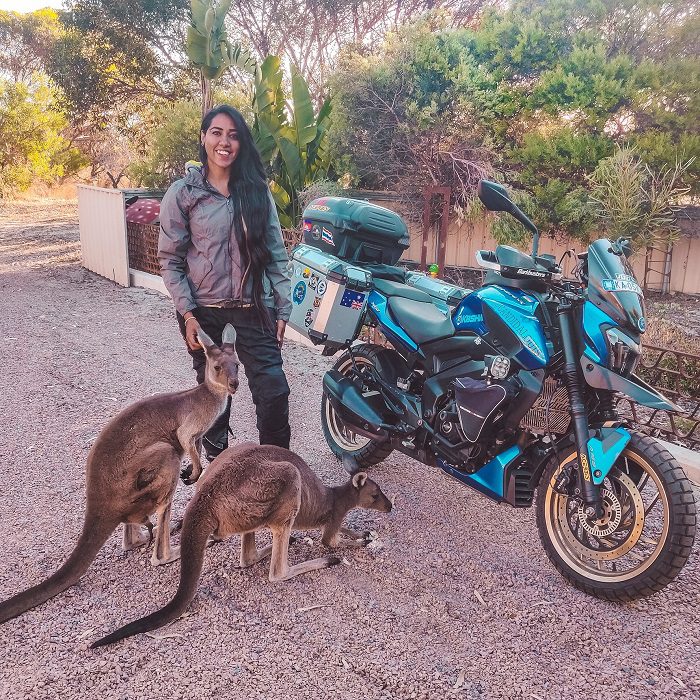 Candida Louis on her road trip in Australia.[/caption]
Candida Louis on her road trip in Australia.[/caption]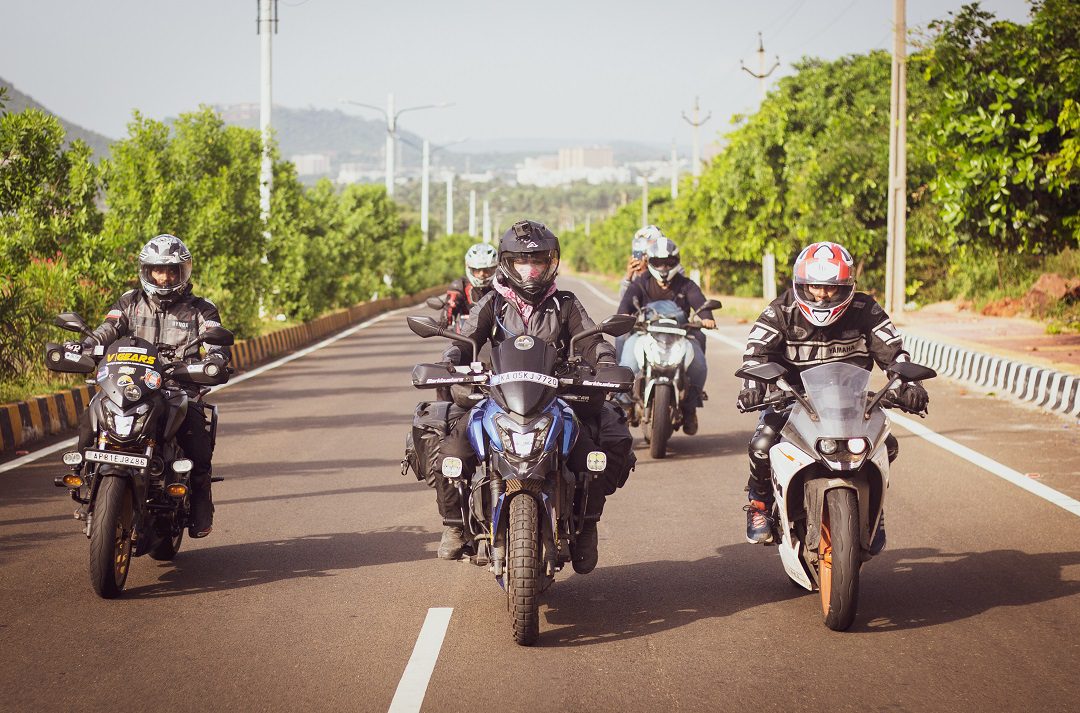 Candida Louis with her group of bikers.[/caption]
Candida Louis with her group of bikers.[/caption]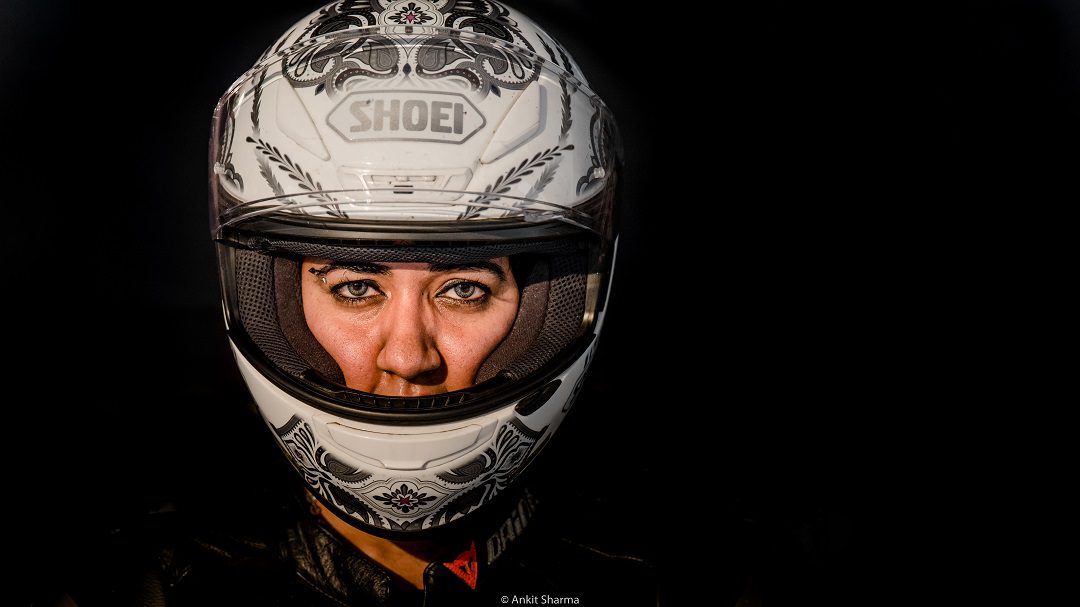 Candida Louis[/caption]
Candida Louis[/caption]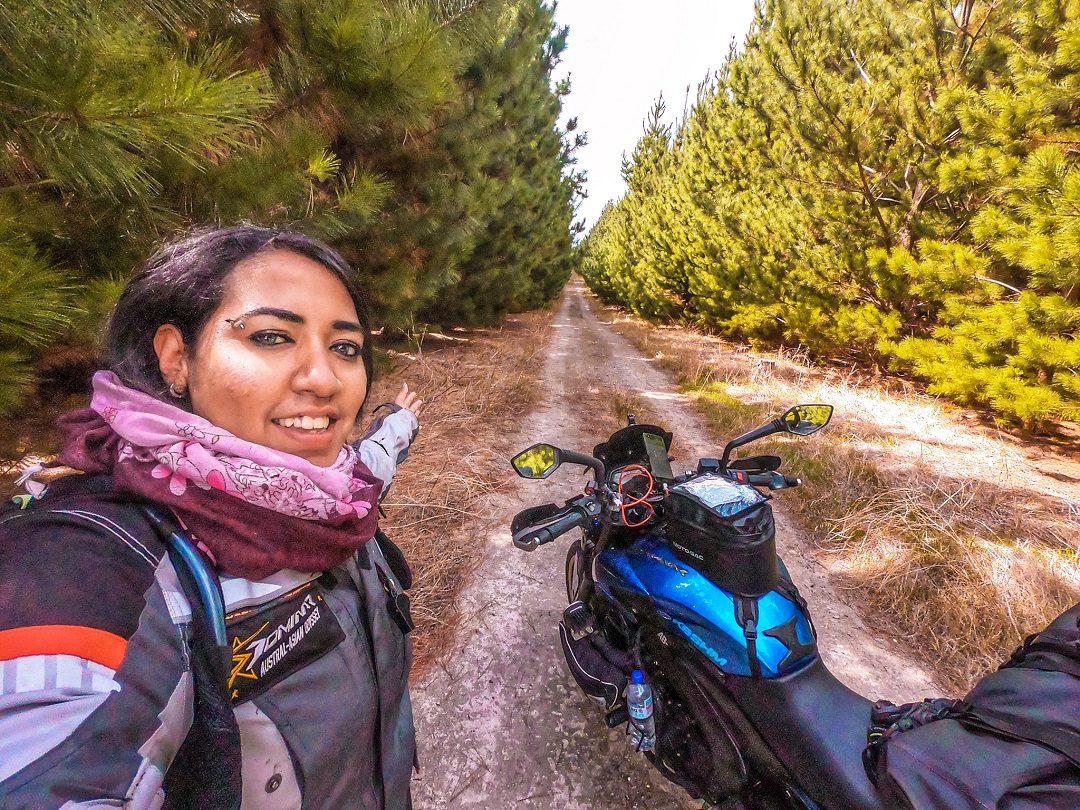 Candida Louis[/caption]
Candida Louis[/caption]